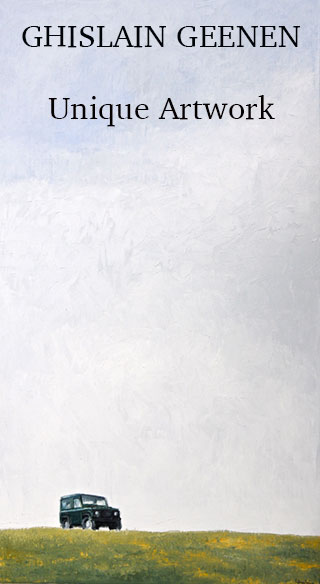So … you want to ban “trophy hunting”?
Open letter to Minister for International Wildlife Zac Goldsmith.
Dear Sir,
I understand that you have a strong desire to ban what you call “trophy hunting”. It baffles me why anyone with a strong interest in nature conservation (which I believe you have) would want to put a stop to a nature management method that is scientifically proven to be beneficial for biodiversity. Please see the IUCN briefing paper “Informing Decisions on Trophy Hunting” and the letter published in the peer-reviewed scientific journal Science (August 30th) signed by 133 nature conservation professionals and titled “Trophy hunting bans imperil biodiversity”.
I find your exact goals and the reasoning behind them somewhat unclear, and I, therefore, hope you will answer a few questions to clarify matters.
.
1. Can you please define exactly what you mean by “trophy hunting”?
The reason I ask is that I do not know of any clear definition. Furthermore, I do not see any major difference in the way hunting/shooting is incorporated in nature management in Western Europe and Southern Africa. In other words: If the present practice in Africa qualifies as “trophy hunting”, then so does the management of deer in the UK.
.
2. Do you have any kind of evidence that “trophy hunting” has no net positive effect on conservation?
On May 15th you tweeted that: “The Minister will not be able to answer now, but I hope that as she gathers the evidence, if it emerges – I believe it will – that the practice of trophy hunting has no net positive effect for conservation, the Government will take the firm position that I think pretty much everyone in the debate has demanded”. So ….. have any evidence to support your beliefs emerged since your tweet? The only scientific documentation of the consequences of “trophy hunting” that I’ve seen in the months that have past is the above-mentioned letter in Science. Please share your evidence.
.
3. What is your practical and financially viable alternative to hunting tourism?
You must have a plan for the future of the millions of animals currently living in natural habitat funded by hunting tourism and the hundreds of thousands of rural Africans making a living out of hunting tourism. I have looked but I have not found your solution. Please share it.
.
4. Are you hoping to ban all hunting trophies or only certain categories?
Recreational hunters keep inedible parts of some of the animals hunted as mementos all over the world. Will a ban affect hunting trophies like wild boar tusks and roe deer antlers brought home to the UK from Europe or are you only aiming to ban import from certain countries?
.
5. Will you ban trophy hunting (according to your own definition) in the UK?
If so …. Will that be a general ban on deer hunting or “just” a ban on taking “trophy photos” and keeping animal parts like antlers or teeth from the animals killed? Will an import ban be matched by an export ban, banning any hunting trophies domestic or foreign to be exported from the UK?
.
6. What is your reason for dismissing the official recommendations from the IUCN regarding “trophy hunting”?
You refer to non-scientific animal rights organizations like LionAid, Born Free and the Campaign To Ban Trophy Hunting as sources of inspiration. Do you think the IUCN – of which several public British institutions are longstanding members – is wrong, and will that have consequences for the future British affiliation with the organization?
.
All the best
Jens Ulrik Høgh
Nordic Safari Club - Communication
These sentiments were echoed in this opinion from Buzz Charlton of the Ruaha Carnivore Project:
Yesterday, in a move widely celebrated as a 'victory' by animal rights groups, the UK Government stated in the Queens Speech that they would ban trophy hunting imports. Writing in my personal capacity as the Director of the Project, I think this is a deeply alarming and depressing move.
The UK is not a major importer of wild trophies, but this still matters. Firstly, it shows that decisions are not being based on science. Science clearly shows the important role that trophy hunting plays in reducing habitat loss, the key threat to biodiversity. Well-regulated hunting has also led to important population recoveries for species including the black and white rhino. Zac Goldsmith and others said they were interested in a proper consultation and were open to hearing evidence about conservation benefits associated with trophy hunting - and yet they have failed to meet key people to hear that very evidence. What hope do we have for addressing issues like climate change if science is ignored and decisions are made based on populist movements and uninformed campaigns?
Secondly, it is terrifying that animal rights campaigners see this as 'job done' and then instantly want to move on to the next target, such Ban Trophy Hunting's call for a 'worldwide ban'. If you are truly concerned about conservation, your next step surely must rather be to dedicate huge amounts of efforts and resources to ensuring that your actions do not lead to unintended negative consequences for conservation, local people or animal welfare in the real world? What about monitoring wildlife to assess the impacts of your actions?
But no - you don't seem to actually care about that. That is apparently left to us, the people in the field who are desperately trying to secure funding for conservation, positively engage local communities, implement workable solutions, prevent wildlife killings and deal with the huge issues of human-wildlife conflict, habitat loss and prey loss - all of which moves like this will only worsen. We have nowhere near enough resources to tackle the existing biodiversity crisis, so it is hugely depressing when millions of well-meaning people across the world push for actions that actually make things worse for both people and wildlife.
If trophy hunting revenue is replaced with equal or greater benefits for wildlife and people, that is wonderful - but I see no evidence that that will happen here, or anywhere else...
Poorly regulated trophy hunting can damage wildlife populations, but in even those cases it is nothing compared to the avalanche of cruel, totally unregulated killing that occurs in areas where wildlife has no value. If trophy hunting revenue is replaced with equal or greater benefits for wildlife and people, that is wonderful - but I see no evidence that that will happen here, or anywhere else where import bans are put in place. So we will end up with no reason to maintain vast areas, and far more killings like the ones pictured here. These images are hard to see, but they are even harder to witness - they are terrible deaths of amazing animals, which occur because wildlife has no value to local people. I don't find them any less devastating because there is no hunter in them, and that certainly does not matter to the animal concerned. A lack of regulated hunting does NOT mean a lack of killing, and without better alternatives in place, removing existing revenue streams and incentives for habitat protection will only make things worse.
Trophy hunting is decried as immoral, and I personally dislike it. However, undermining it without implementing better solutions will increase horrible, unregulated killings, undermine local decision-making about wildlife use, reduce wildlife revenue, increase habitat and biodiversity loss, and leave the world far poorer for all our children. I deeply believe that is far more immoral. For anyone who cares about conservation or animal welfare, truly understanding this issue would reveal it to be an extremely hollow 'victory'.
Published by Vintage Guns Ltd on (modified )




